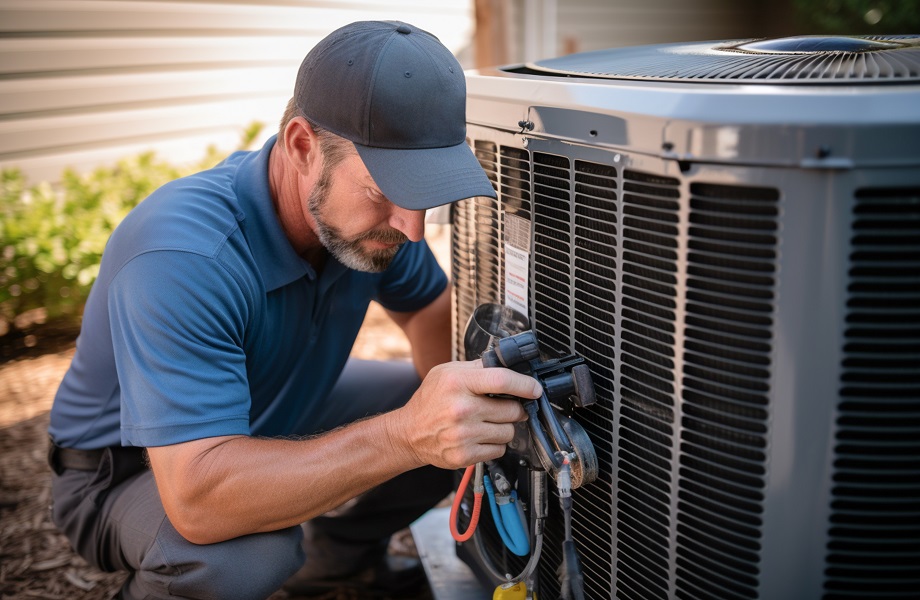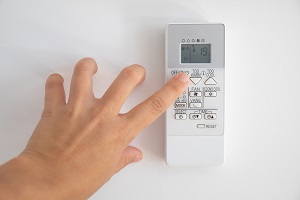
Air Conditioner Skills are essential in today’s world, where the demand for air conditioning units is constantly increasing. In any air conditioning system, the condenser plays a vital role. As you study HVAC work at ITI Technical College, you will learn about heating, ventilation, air conditioning, electrical, and refrigeration work. Condensers and other components work as a complete unit with a significant part of your training in condenser troubleshooting and repair. Students learn the roles they play and different ways to troubleshoot and maintain them. Contact ITI Technical College today for more information.
What Are Air Conditioner Condensers?
An air conditioner condenser is the outdoor unit of an air conditioner or heat pump. It transfers heat from a refrigerant into the outside air, which in turn, cools homes and businesses. Its essential components and functions include:
- The condenser contains a fan and a compressor
- It receives high-pressure, hot refrigerant from the compressor
- The condenser converts the refrigerant to a liquid through heat transfer
- Air passes over copper coils and aluminum fans where the heat is carried away and the gas condenses
- The condenser fan circulates air around the coils to create efficient heat transfer
A condenser’s function depends on the season of the year. The cooling mode removes heat from indoor air, and the heating move brings warm air from the outside to the inside. Tubing connects a condenser to the indoor unit to carry refrigerant vapor to transfer heat. A leak in the condenser can cause the system to lose refrigerant which is needed for cool air. Call an HVAC technician immediately if you detect a leak.
Types Of Air Conditioners
There are many types of air conditioners on the market today, some of which you may not know about. Here are the most common ones for residential use:
- Central Air and Heating systems are the most common systems in use in the U.S. They have a condenser outside the house and a furnace inside the house and are typically powered by electricity and natural gas. Cool and warm air are circulated through ducts.
- Split Ductless systems have individual wall units in each room with individual controls to set the temperature at different levels throughout the house.
- Window Units are placed in windows only in the rooms you desire to coo. They are the least expensive to purchase.
- Portable Units sit inside a room on the floor and have a duct to the outside through an opening in the window. They can be moved from room to room.
- Heat Pumps are devices that use electricity to move heat from one place to another either for cooling or heating a house.
- Evaporative Coolers, also called swamp coolers, circulate air over a large container of cool water that adds moisture to the air. They do not use condensers, compressors, or refrigerated chilled air. They work well in dry climates.
- Geothermal ACs use a type of high-efficiency heat pump to use the earth’s constant underground temperature to heat and cool homes.
- Packaged Units are those typically found in motels, nursing homes, or assisted living centers. The cooling and heating both come through a single unit in individual rooms.
|
“As you study HVAC work at ITI Technical College, you will learn about heating, ventilation, air conditioning, electrical, and refrigeration work.” |
Typical Condenser Problems That Require Air Conditioner Skills
Condensers can operate ineffectively when airflow is blocked because they must have room to breathe. If you have plants, trees, or other obstructions that are located next to your unit, they will block the airflow to some extent. This makes it more difficult for the unit to blow the right amount of air over the coils. Here are some other problems that need a technician’s help:
- Bent Fins can occur when something comes into contact with them that bends the metal fins. The fins surround the condenser unit, and when too many of them are bent air cannot flow through them adequately.
- Blown Capacitors are small electronic components that won’t function. They help start and run an air conditioner, and when they fail, the compressor will also fail.
- Dirty Coils can cause problems over time when dirt and debris are blown around the condenser that builds up in the inside and outside of the unit. When dirt builds up on the coils, it becomes harder for heat to transfer to the air outside. This will cause the air conditioner to deliver warm instead of cool air to the house.
- Fan Issues may occur such as getting clogged up with dirt, debris, bent, or worn out. Without an active fan, the air won’t circulate throughout the house.
- Refrigerant Leaks can develop both inside the condenser unit and in the lines that lead to and from it. Leaks cause the AC system to work much harder, and your home won’t cool down properly, or it will take a long time to do so.
Air Conditioner Skills Training
A great place to learn HVAC skills is ITI Technical College in Baton Rouge. Enroll in our Associate of Occupational Studies (AOS) Program in our Air Conditioning, Refrigeration, and Electrical Technology Program to prepare for a position in this industry.
For more information about graduation rates, the median debt of students who completed the program, and other important information, please visit our website:https://iticollege.edu/disclosures/






